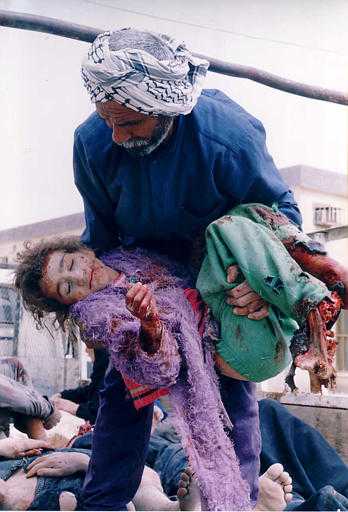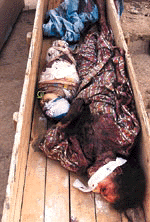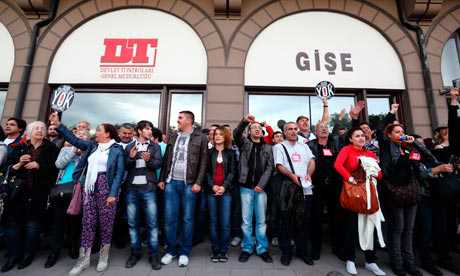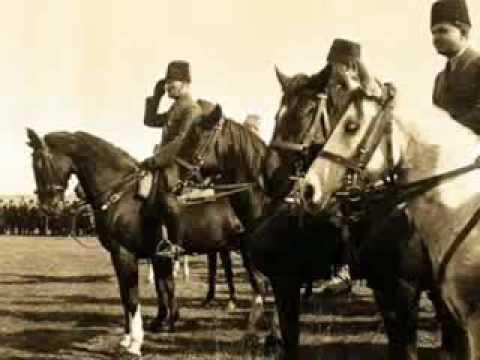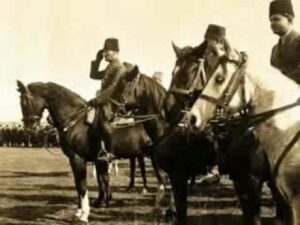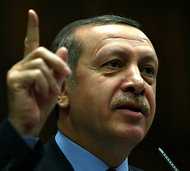AMERICA’S WAR-HORSE HARLOTS
Stoop, Romans, Stoop,
And let us bathe our hands in Caesar’s blood
Up to the elbows, and besmear our swords; Then walk we forth, even to the market-place,
And waving our red weapons o’er our heads, Let’s all cry, “Peace, freedom, and liberty !”
Julius Caesar, Act III, i
According to experts if you really, really want to get rid of a neighbor—“bump off” is the professional term—call the mafia. But if you’re a down-at-the-heels fast fading super power, broke and bewildered, and need to continue the Arab Spring fairy tale about having the Arabs choose America-friendly democracies that sprout like orange groves throughout the Middle East, these same experts unanimously suggest you call Turkey. Just dial 011-90-ALLAHSBOYS. Oerators are standing by to answer your calls.
ALLAH’S BOYS specialize in duplicity: double-talking, double-dealing, and double-facing. Once upon a time not so very long ago “peace at home, peace in the world” was a national motto in Turkey. Now, thanks to ALLAH’S BOYS, there is no peace anywhere. And even more recently, ALLAH’S BOYS declared a foreign policy aphorism: “zero problems with our neighbors.” Now Turkey has nothing but problems and zero genuine neighbors, despite the weak-knee scribbling of the government-controlled propaganda press.
So since America needs to oust the leadership of Syria, Turkey is their international gangster of choice. Need to secure the oil pipeline forever? Want to protect Israel’s borders, even though expansionist Israel has never declared them? Call Turkey. This amnesiac country can forget the “van minit” fiasco at Davos in approximately one minute, if the price is right. It’s so terribly easy. All it takes is money.
Yes, ALLAH’S BOYS will do the sneaky, dirty work, especially on their brother Muslims, very democratic, these boys. After all, ALLAH’S BOYS are CIA creatures. Remember the “our boys did it!” exclamation from the 1980 CIA-induced Turkish military coup? ALLAH’S BOYS are the bad seed Islamo-fascist children of that catastrophe. True masters of disaster who have raped their own country through privatization, just like the juntas did in South America. Inside Turkey environmental disaster prevails. Forests are destroyed, rivers contaminated by stupid self-serving plans. “No river shall run in vain,” says the head ALLAH’S BOY, meaning that all running waterways will somehow, somewhere generate electricity. Forget nature. Turkey’s once thriving agriculture is nearly barren, its seed imported from Israel. The uneducated voting base of ALLAH’S BOYS remains bedazzled and uneducated. With no economic plan for the future, ALLAH’S BOYS encourages them to have at least 3-5 children. It needs the votes. The once proud Turkish Army has been purged, its senior ranks now stuffed with government toadies. The recent military disasters related to America’s drone-fiascos attest to its incompetence; it has yet to explain or otherwise account for the grievous loss of Turkish lives. Hundreds, thousands—one loses count—of democratic dissenters are in jails throughout the land. Everyone is wire-tapped. Public-space cameras abound. Fascist style police control the streets. Every public assembly of citizens turns into a police riot. Democratic constitutional protections no longer exist. The judicial system is thoroughly politicized. Art, music, cinema, theater, writing, all is subject to censure or fine or destruction. And political thievery an institutional art form.
All this and more is what America’s favorite adopted sons, ALLAH’S BOYS, have brought to their own country. ALLAH’S BOYS knows how to do two things very well, destroy and make money. And America truly loves what this motley crew has done for now the US is paying them big war-bucks for a new, disastrous adventure in the name so-called democracy. Now the Arab world is experiencing democracy a la Turka, as prepared in America, as delivered by ALLAH’S BOYS and their CIA handlers.
It all happened so quickly, like love at first sight. Only two years ago the capo of ALLAH’S BOYS wondered out loud about “what business does NATO have in Libya?” This was shortly after he had accepted the Muammar Gaddafi Human Rights Award. But then a breeze blew past his bristled upper lip bringing the smell of cordite, carrion, and chaos, followed by a little bird carrying a wad of large denomination American dollars. Twitter. Twitter. And ALLAH’S BOYS suddenly learned how to make money from war. And suddenly Muammar became a big-time loser and the Turks were bombing Libya along with the rest of NATO. And for the last 15 months ALLAH’S BOYS have been provoking Syria. In collusion with the CIA, automatic weapons, tanks, rockets, all the toys of war, have been given to the so-called Friends of Syria mercenaries. These unsavory characters bear a painful resemblance to the US-financed gangsters who toppled Saddam’s statue in Firdos Square in 2003 and, to Hillary Clinton’s great glee, sodomized and disemboweled Gaddafi last year. And now the murderers from the infamous Blackwater gang are in southern Turkey. Such is the way ALLAH’S BOYS (and the CIA) operate. Money. Money. Money.
But now they have provoked Syria too much. A Turkish jet, violating Syrian air space, coming in low and fast, got dropped into the sea. Remember the Gulf of Tonkin fiasco? The concocted incident that “validated” America’s disastrous war in Viet Nam? This is the same lying subterfuge played on the world stage, courtesy of the CIA and America’s puppet show provided by ALLAH’S BOYS. And now ALLAH’S BOYS cry murder most foul their own self-provoked crisis. And of course their American handlers echo the outrage. Make no mistake about this: they, ALLAH’S BOYS and America, are the real murderers of the two downed Turkish pilots. Along with the incompetent military commanders who approved this mission of provocation. But indeed they all found out that, Yes, Syria does indeed have an air defense capability. How stupidly negligent can one be? Ah, but the money is good.
As they used to say about Mexico and America, can be said about Syria: “Poor Syria. So far from God. So close to Turkey.” And to think Bashar Assad, a physician trained in England and president of Syria, and his stylish wife, Esma, British and college-educated, were feted in Ankara not too long ago. His wife dazzled in comparison to the fashion-retard covered wives of ALLAH’S BOYS. Then, Turkey and Syria were on great terms. The border was open. No visas or passports necessary. Trade was booming between Hatay in southern Turkey and Syria. But then that same little bird flew in the window at Ankara. And suddenly the room was full of money. And suddenly it became War! War! War! And American war bucks galore filled the Turkish air. And the ever capacious, ever open pockets of the Turkish government became happy pockets indeed.
The Turkish media lackeys bang their pathetic war drums. ALLAH’S BOYS cry wah-wah-wah to NATO, the UN and any other agency who cares to listen. It’s known as the alibi-cover up scam, also known as “protesting too much.” But the BOYS have America’s melodramatic outrage to revel in, and “endless support” according to the hapless American ambassador. So now Turkey can add its bloody hand to the millions of its Muslim “brothers and sisters” killed and displaced in Iraq and Afghanistan. What a bloody bunch! What a collection of phonies! What a dishonorable gang!
There is no honor in war. Just examine the photographs of the destroyed Iraqi children. Where are your children, ALLAH’S BOYS? There surely is no honor in America’s endless, hopeless, murderous wars. And there is nothing but treachery and greed among America’s War-Horse whores, these dogs of war who wave their red weapons over their heads crying “PEACE! FREEDOM! LIBERTY!” when they really mean MONEY! MONEY! MONEY! Killers all.
And all this carnage under the aegis of the Nobel Peace Prize winning American president.
The shame is boundless, the rape obscene.
Cem Ryan
13 July 2012
PS: See the websites of West Point Graduates Against The War and Service Academy Graduates Against The War for further details about America’s war crimes and its war criminals.
http://www.brighteningglance.org/americarsquos-war-horse-harlots-29-june-2012.html
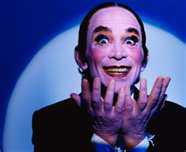
Money makes the world go around…
Joel Grey, CABARET
Money, money, money, money
Money, money, money, money
Money, money, money, money, money
_____________________________________________________
THE DESTROYED CHILDREN OF IRAQ
WAR IS A CRIME!
STOP THE WAR CRIMINALS!
